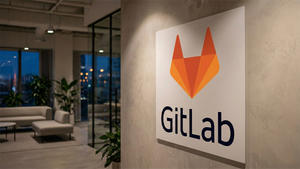Pandemic pet adoptions provide a tail-wagging opportunity for retailers and brands long term
Quotient (NYSE: QUOT), the leading digital media and promotions technology company, today released findings around the pet adoption boom fueled by the pandemic over the last year, and what it means for brands and retailers in the year ahead. In a survey of over 1,000 US cat and dog owners aged 18+, 33% noted that they adopted a pet during the pandemic. To get a significant cross-section of data, Quotient also pulled internal social and sales data revealing how consumers’ shopping habits for pet items during the pandemic had changed.
According to internal Quotient data, as people settled in to working from home with their pets, dog control products – such as bark control, harnesses, and gentle leads – saw a 113% increase in sales compared to pre-COVID. The survey shows that of the people who adopted pets during the pandemic, 52% were male and 48% were female. Furthermore, the survey revealed that Millennials (aged 24-42) were the most likely to adopt during the pandemic, with 43% contributing to the fur baby boom. While Millennials mainly adopted pets for children/other family members who had been wanting one (40%), 32% of Gen Z (aged 18-23) adopted a pet to boost their mental health.
“With the adoption of furry companions during the pandemic, we found interesting consumer purchase trends for food, gifts, treats and more,” said Steven Boal, CEO of Quotient. “These animals have already and will continue to influence consumers’ purchasing behavior long after the pandemic is over. This provides retailers and brands with the opportunity to identify and provide value for the ongoing needs of their customers—and their pets.”
As pandemic restrictions eased across the US, Quotient asked dog and cat owners what top 3 items they plan to spend the most money on for their pet over the next 12 months. To no surprise, food (84%) and medicine/veterinary care (45%) are expected to cause the biggest hole in consumers’ wallets. 44% of dog and cat owners are also planning to pamper their pooches and kitties with the intent to purchase treats. And while standard dry food/wet food reigns supreme as the pet food most commonly eaten (80%), almost 17% of respondents noted that they cook for their pet. Of those who cook for their pet, more male respondents (55%) than female respondents (45%) do this.
The last year was a period in which many consumers stayed home and spent less, but that did not necessarily apply to pet owners. Just under one-sixth (16%) of respondents usually feed their dogs and cats with gourmet and/or subscription food services. Younger generations are even more willing to feed their pets with premium selections (21% of both Millennials and Gen Z). This supports Quotient’s internal data that also showed pets are eating premium. Non-dry dog food sales—including wet and moist dog foods, which tend to be more expensive—are up 25% compared to pre-COVID.
While most pet owners anticipate that necessities like food and healthcare will dominate their expenses, the survey shows that 11% expect clothing and accessories to rack up the highest bill over the next 12 months. This is not surprising given that 78% of respondents consider their pet to be their best friend or family member. Their love and affection continues throughout the various seasons of gift giving, with almost half (42%) of respondents planning to pamper their pooches with a Christmas surprise. Nearly as many plan to pick up a birthday gift (40%). “Gotcha day” (anniversary) is another important milestone and respondents who will celebrate it plan to spend an average of $87 on a gift to commemorate the occasion. This is notably higher than the amount of money consumers plan to spend on holiday gifts ($57), Halloween costumes ($59), or birthday gifts ($62).
When asked where they usually shop for their dog and/or cat, pet superstores received the greatest number of responses (48%). Of Baby Boomers (aged 55-73), 39% shop at pet superstores the most, but they also enjoy the shopping experience that big box retailers provide (31%). Millennials preferred local, boutique pet stores (24%) more than any other generation.
With the increase in dog and cat adoptions during the pandemic, consumers’ shopping habits will be different for the foreseeable future. This presents retailers and CPGs with the unique opportunity to identify their customers’ new shopping needs. To learn more about this survey, visit: https://www.quotient.com/blog/quotient-survey-pandemic-pet-parents/.
Methodology statement
The research was conducted by Censuswide with 1,017 dog and/or cat owners in the US aged 18+ in June 7-9, 2021. Censuswide abides by and employs members of the Market Research Society, which is based on the ESOMAR principles.
About Quotient
Quotient (NYSE: QUOT) is the leading digital media and promotions technology company for advertisers, retailers and consumers. Our omnichannel platform is powered by exclusive consumer spending data, location intelligence and purchase intent data to reach millions of shoppers daily and deliver measurable, incremental sales.
Quotient partners with leading advertisers and retailers, including Clorox, Procter & Gamble, General Mills, Unilever, Albertsons Companies, CVS, Dollar General and Peapod Digital Labs, a company of Ahold Delhaize USA. Quotient is headquartered in Mountain View, California, and has offices across the US as well as in Bangalore, Paris, London and Tel Aviv. For more information visit www.quotient.com.
View source version on businesswire.com: https://www.businesswire.com/news/home/20210727005228/en/
Contacts
Brands2Life on behalf of Quotient
Jenna Becker
415-610-7500
quotient@brands2life.com





